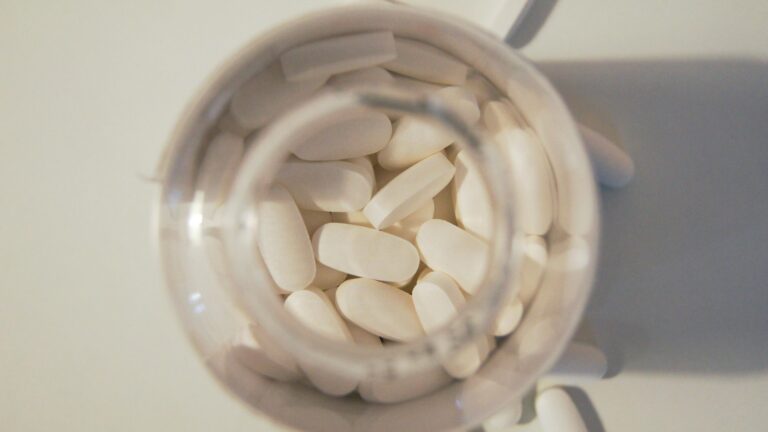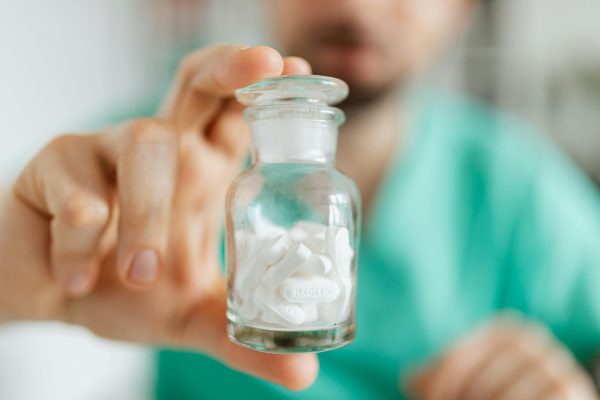Erectile dysfunction (ED) can feel like a sucker punch to your confidence. It’s even more frustrating when it’s tied to something that’s supposed to help you—like metoprolol, a commonly prescribed beta-blocker for high blood pressure and heart conditions. If you’re taking metoprolol and noticing changes in your sexual performance, you’re not alone. Let’s break this down, man-to-man, and see what’s going on under the hood.
- What is Metoprolol?
- How Metoprolol May Cause Erectile Dysfunction
- How Common is ED with Metoprolol?
- Signs That Metoprolol Might Be Affecting Your Performance
- What Can You Do About It?
- Are There Alternatives to Metoprolol?
- Can You Prevent ED While on Metoprolol?
- The Bottom Line
- FAQs: Metoprolol and Erectile Dysfunction
- Question: Can metoprolol cause erectile dysfunction?
- Question: How common is erectile dysfunction with metoprolol?
- Question: Are there alternatives to metoprolol that have fewer sexual side effects?
- Question: What should I do if I experience erectile dysfunction while taking metoprolol?
- Question: Can lifestyle changes help reduce erectile dysfunction caused by metoprolol?
- Question: Is erectile dysfunction caused by metoprolol reversible?
What is Metoprolol?
Metoprolol is a beta-blocker, a class of drugs that slows your heart rate and reduces blood pressure. It’s prescribed for conditions like hypertension, angina, and even after a heart attack. Think of it as a bodyguard for your heart—it keeps things cool when the pressure’s on. But like any good bodyguard, it can sometimes block more than just danger.
How Metoprolol May Cause Erectile Dysfunction
Let’s cut to the chase: metoprolol can lead to ED for some men. Here’s why:
- Reduced Blood Flow: Beta-blockers can reduce the force with which your heart pumps blood. While that’s great for controlling high blood pressure, it might mean less blood is reaching the areas that matter most—yes, we’re talking about your downstairs department.
- Interference with Hormones: Metoprolol may affect testosterone levels or how your body processes this key hormone, leading to a drop in libido and sexual performance.
- Nerve Signal Disruption: Achieving and maintaining an erection is a team effort involving your brain, nerves, and blood vessels. Beta-blockers can interfere with the signals between your brain and your, um, special team player.
- Psychological Impact: Let’s be real—knowing that a medication might cause ED can stress you out. That stress alone can throw a wrench in the works. It’s a vicious cycle, and metoprolol may be the unwelcome guest that started it.
How Common is ED with Metoprolol?
Not every man who takes metoprolol will experience ED, but it’s not a rare side effect either. Studies suggest that beta-blockers, in general, are linked to higher rates of sexual dysfunction compared to other heart medications. If you’ve noticed changes, it’s worth discussing with your doctor.
Signs That Metoprolol Might Be Affecting Your Performance
If you’re on metoprolol and experiencing these symptoms, it could be more than a coincidence:
- Difficulty achieving or maintaining an erection
- Decreased libido or sexual desire
- Weaker or shorter-lasting erections
- Overall fatigue that impacts your bedroom stamina
What Can You Do About It?
Before you start blaming metoprolol entirely, remember that ED can have multiple causes, including stress, poor diet, lack of exercise, and underlying health conditions. That said, here’s what you can do if you suspect metoprolol is playing a part:
1. Talk to Your Doctor
We know—this isn’t the easiest conversation to have. But your doctor has heard it all before, trust us. They might:
- Adjust your dosage: Sometimes, a lower dose can manage your condition without the unwanted side effects.
- Switch medications: Alternatives like ACE inhibitors or ARBs (angiotensin receptor blockers) may have fewer sexual side effects.
- Rule out other causes: Your doctor will check for underlying issues that could be contributing to ED.
2. Lifestyle Changes
Even small tweaks can make a big difference:
- Exercise regularly: Boost circulation and testosterone levels with activities like weightlifting or cardio.
- Eat heart-healthy foods: Think leafy greens, nuts, fish, and whole grains.
- Quit smoking: Tobacco messes with blood flow—enough said.
- Limit alcohol: A few drinks might loosen you up, but too much can dampen your performance.
3. Consider ED Treatments
Your doctor might recommend ED-specific treatments like:
- Phosphodiesterase inhibitors (e.g., Viagra, Cialis): These can help improve blood flow and get things moving in the right direction.
- Vacuum erection devices: Not the sexiest solution, but hey, they work for some guys.
- Psychological support: If stress or anxiety is adding to the problem, therapy can help.
4. Monitor Your Mental Health
Don’t underestimate the power of a positive mindset. Stress and depression can turn a manageable side effect into a full-blown issue. Take care of your mental health, whether that’s through meditation, therapy, or just a solid chat with your buddies.
Are There Alternatives to Metoprolol?
If your doctor agrees, they might switch you to another medication with fewer sexual side effects. Options include:
- Calcium channel blockers (e.g., amlodipine)
- Angiotensin II receptor blockers (ARBs) (e.g., losartan)
- ACE inhibitors (e.g., lisinopril)
Each has its own pros and cons, so don’t make the swap without medical advice.
Can You Prevent ED While on Metoprolol?
While there’s no guaranteed way to prevent ED, combining these strategies can help:
- Stay active and eat a balanced diet to promote overall cardiovascular health.
- Communicate openly with your partner to reduce performance anxiety.
- Work closely with your healthcare provider to manage your condition effectively.
The Bottom Line
Look, ED is frustrating, but it’s not the end of the world—or your sex life. If metoprolol is cramping your style, you’ve got options. Whether it’s switching medications, embracing lifestyle changes, or exploring ED treatments, there’s a path forward. Remember, this is about your health and happiness. Don’t let embarrassment stop you from taking action.
And hey, while we’re at it, don’t forget to celebrate the small wins along the way. Managing your heart health and improving your sexual well-being? That’s a combo worth striving for.
Keep your head up, champ. You’ve got this.
Sources and Links
For further reading and trusted resources on metoprolol, erectile dysfunction, and overall health, check out the following links:
- American Heart Association
Learn more about beta-blockers and their impact on heart health.
https://www.heart.org - Mayo Clinic – Beta Blockers
A comprehensive guide on how beta-blockers like metoprolol work and their side effects.
https://www.mayoclinic.org - National Library of Medicine – Erectile Dysfunction Overview
Detailed information on ED, its causes, and treatments.
https://www.ncbi.nlm.nih.gov - Cleveland Clinic – Erectile Dysfunction and Medications
An informative article about medications that may cause or contribute to ED.
https://my.clevelandclinic.org - Drugs.com – Metoprolol Side Effects
An easy-to-read breakdown of metoprolol’s potential side effects, including ED.
https://www.drugs.com - WebMD – Erectile Dysfunction Treatments
Explore treatments and solutions for ED, including medication and lifestyle changes.
https://www.webmd.com - Harvard Health – Erectile Dysfunction and Heart Disease
Insights into the connection between cardiovascular health and sexual function.
https://www.health.harvard.edu
FAQs: Metoprolol and Erectile Dysfunction
Question: Can metoprolol cause erectile dysfunction?
Yes, metoprolol, like other beta-blockers, may cause erectile dysfunction as a side effect. It can reduce blood flow, interfere with hormonal balance, and potentially impact nerve signals involved in achieving an erection.
Question: How common is erectile dysfunction with metoprolol?
While not all men experience this side effect, studies suggest that sexual dysfunction, including erectile dysfunction, is more common with beta-blockers compared to other types of heart medications.
Question: Are there alternatives to metoprolol that have fewer sexual side effects?
Yes, alternatives such as ACE inhibitors (e.g., lisinopril) or ARBs (e.g., losartan) may have fewer sexual side effects. Discuss with your doctor before making any changes to your medication.
Question: What should I do if I experience erectile dysfunction while taking metoprolol?
If you experience erectile dysfunction, talk to your doctor. They may adjust your dosage, switch you to another medication, or suggest treatments like phosphodiesterase inhibitors (e.g., Viagra) to help manage the condition.
Question: Can lifestyle changes help reduce erectile dysfunction caused by metoprolol?
Yes, lifestyle changes such as regular exercise, a heart-healthy diet, quitting smoking, and reducing alcohol intake can improve overall cardiovascular health and help reduce the impact of ED.
Question: Is erectile dysfunction caused by metoprolol reversible?
In many cases, erectile dysfunction caused by metoprolol can improve with adjustments to medication, lifestyle changes, or specific treatments for ED. Consult your healthcare provider for guidance tailored to your situation.
Disclaimer: This article is for informational purposes only and should not replace professional medical advice. Always consult with a healthcare provider before starting any new treatment.





